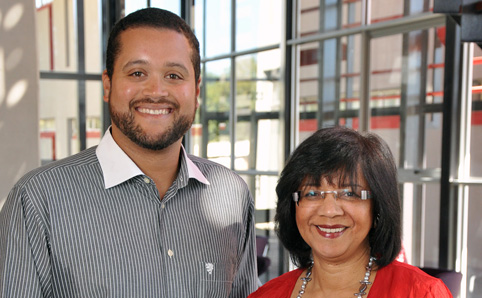 |
|
Here are Rhoda Kadalie and Mark Lotter at the Business School
Photo: Stephen Collett
30 March 2012
|
Renowned South African human activist and popular columnist Rhoda Kadalie recently visited the Business School to lecture on social entrepreneurship.
Ms Kadalie has been the Executive Director of Impumelelo since 1999. This organisation rewards innovative government and civil society initiatives that improve social service delivery in the eradication of poverty in South Africa.
She was accompanied by Mr Mark Lotter, Fundraiser and Marketing Manager of Impumelelo. Mr Lotter did a presentation on ground-breaking achievements using best-practice South African case studies, e.g. the Mariannhill Landfill Conservancy, Phelophepa Health Train and mothers2mothers.
They elaborated on the principles underlying the work and contributions of Impumelelo to the future well-being of the nation. It was clear from the lecture and the discussions that followed by MBAs, under- and postgraduate students from different faculties, as well as members of the university community, that the debate on social entrepreneurship is highly relevant, much needed and very important.